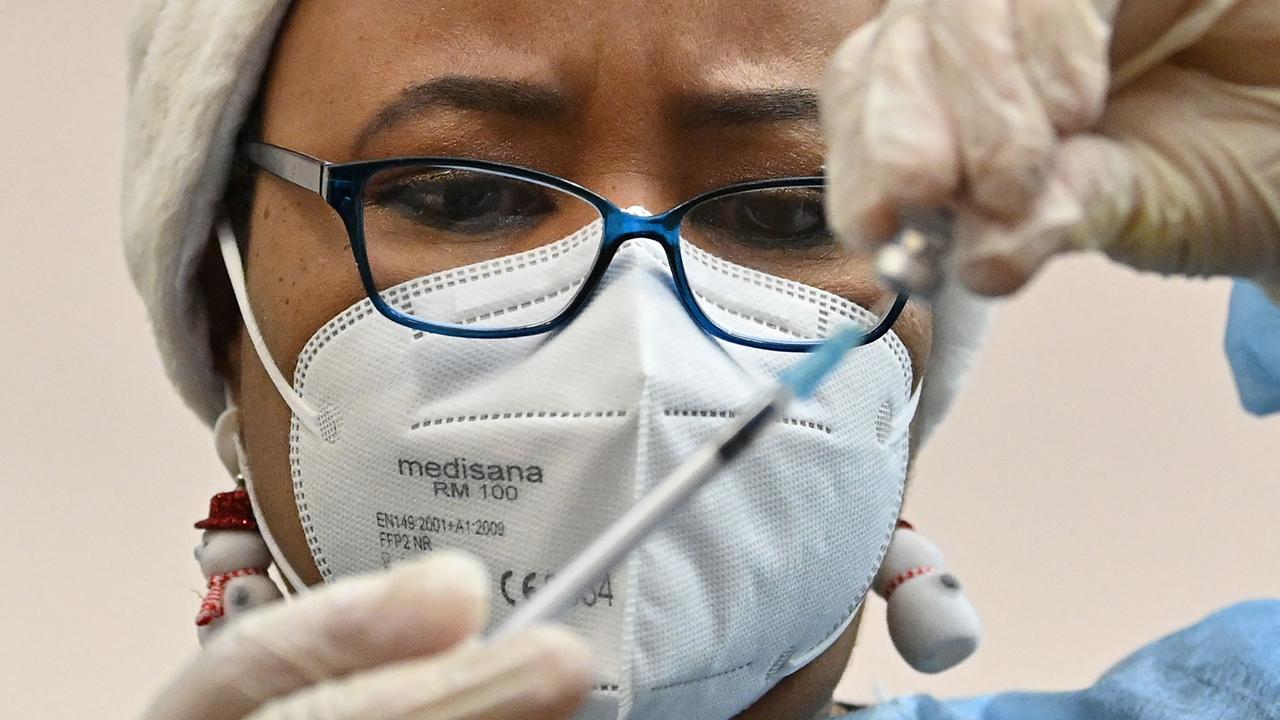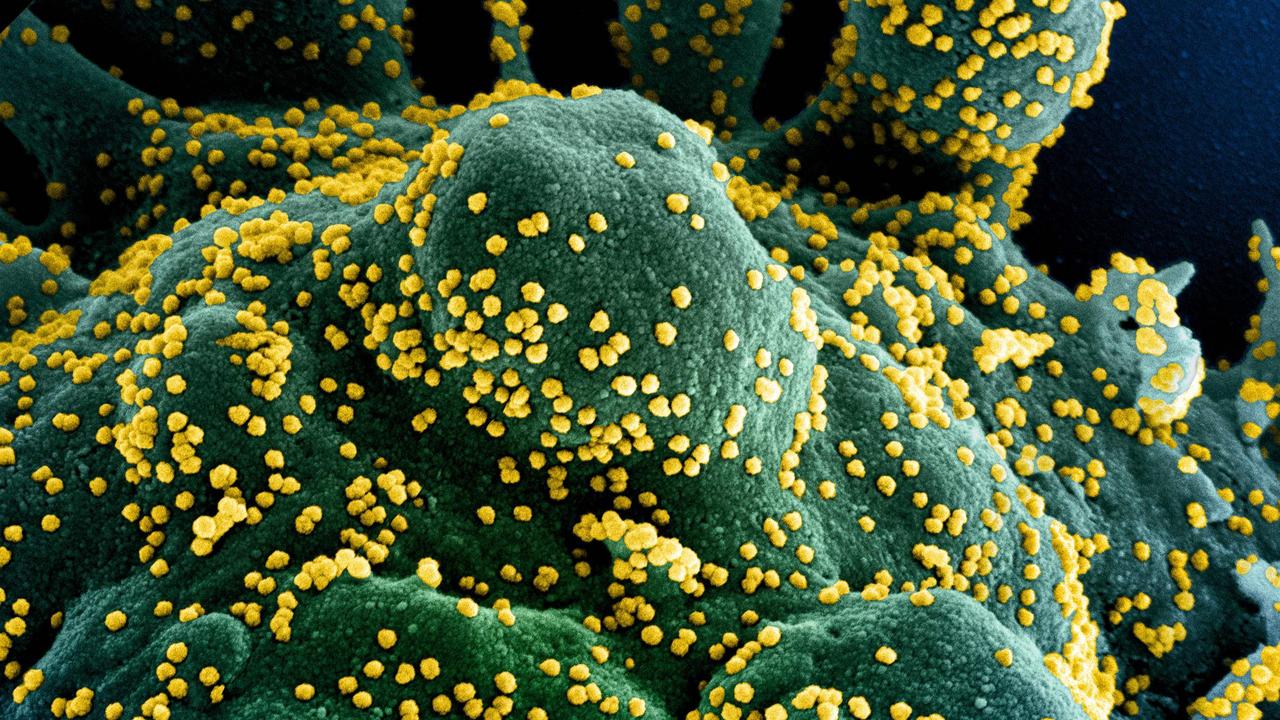New XE Covid-19 variant spreads faster than Omicron BA.2
Health authorities are racing to learn as much as they can about a new hybrid variant of Covid-19 that is spreading in the UK.

Health authorities are racing to learn as much as they can about a new hybrid variant of Covid-19 that is spreading in the UK – as a separate new strain has been detected in China.
From early indications, it appears that new strain in the UK, called XE, might be the fastest-spreading variant yet. But there is still a lot of work needed to understand how if differs from previous strains.
It was first picked up by authorities in the UK in mid-January, where more than 600 cases have since been reported, according to the UK’s Health Security Agency.
From what scientists know about it so far, it appears to be a “recombinant” variant, which means it is comprised of genetic material from two other strains. In this case, XE is understood to be made up from parts of the two Omicron variants – BA.1, the original strain, and BA.2, known as “stealth Omicron”.
With recombinant variants expected, when it first emerged, authorities in the UK didn’t appear overly concerned about the rate of its spread.

However, in an update on March 25, British health authorities revealed more recent data showed XE had a growth rate of 9.8 per cent above BA.2.
The World Health Organisation (WHO) released similar findings, citing estimates that show XE is 10 per cent more transmissible than BA.2. However, those findings require further confirmation, it noted.
“XE belongs to the Omicron variant until significant differences in transmission and disease characteristics, including severity, may be found,” a WHO report said.
BA.2 was previously identified as the most transmissible variant, as it spreads about 75 per cent faster than BA.1, according to health officials.
Little cause for alarm as yet
Health officials have said there is little cause for alarm at this stage, as there is no evidence to suggest that the variant can escape vaccines, cause more severe disease or is more deadly.
And, despite its ability to spread quickly, it hasn’t spread very far just yet.
XE makes up less than 1 per cent of total Covid-19 cases that have undergone genomic sequencing in the UK. (Though numbers of tests being sequenced in the UK have dropped dramatically in recent months.)
“This particular recombinant, XE, has shown a variable growth rate, and we cannot yet confirm whether it has a true growth advantage,” Professor Susan Hopkins, chief medical adviser for the UK Health Security Agency said in a statement.
So far, no cases of the recombinant variant have been reported in any other country, including Australia.

Dr John Brownstein, an epidemiologist at Boston Children’s Hospital said recombinant variants are to be expected and that XE may just fizzle out, despite its ability to spread quickly.
“Recombinant variants happen over and over. In fact, the reason that this is the XE variant recombinant is that we’ve had XA, XB, XC, XD already, and none of those have turned out to be any real concern,” he told the US ABC.
There is also a high level of protection both from vaccines and from natural immunity during the Omicron wave.
“It’s possible it may be more transmissible, but that doesn’t necessarily mean it’s more severe,” he said. “And given the sheer number of infections we’ve already seen with Omicron, it’s really unclear whether even being slightly more transmissible means we’ll see any impact of this variant whatsoever.”
New variant also found in China
Meanwhile, health officials in Suzhou, a city 30 minutes west of Shanghai, have detected a mutation of the Omicron variant not found in local or international databases, state media reported on Sunday.
“This means a new variant of Omicron has been discovered locally,” the Xinhua news agency said, citing health official Zhang Jun, deputy director of the Suzhou Centre for Disease Control and Prevention.
The mutation has evolved from the BA.1.1 branch of the Omicron variant, according to the Global Times, citing sequencing data from local health authorities.

What the new variants mean for Australia
Covid cases across Australia have been tracking upwards in recent weeks, with an average of 57,000 new cases recorded each day nationwide.
The BA.2 a sub-variant of the original Omicron has become the dominant strain.
However, in a piece for The Conversation today, professor of epidemiology Tony Blakely said BA.2 case numbers are unlikely to reach worrying heights requiring reinstating restrictions.
However, he said we do need to be on the lookout for new, potentially more dangerous variants.
“New variants muscle out existing variants because they are either innately more infectious, or have some immune escape, meaning vaccines or previous infection offer less protection,” he said.

“But there is no natural selection advantage based on innate virulence (how likely it is to cause severe illness, hospitalisation and death). We just don’t know what the next variant will bring.
“We’re lucky the variant that came along just as we were largely vaccinated and ready to open up to the world was Omicron with lower virulence. We may not be so lucky next time.”
The Australian Department of Health said it was “closely monitoring” the Covid-19 situation overseas and would respond accordingly.
“The Australian Government is closely monitoring the global Covid-19 situation and is ready to respond quickly to changing information and circumstances, including the possibility of new variants of Covid-19 emerging in Australia,” the department said.






